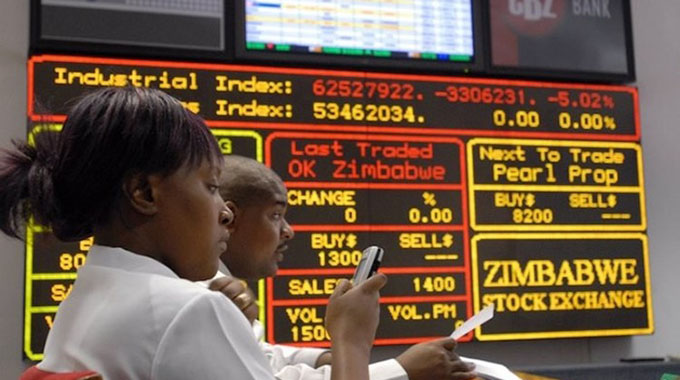Lack of money not the cause of poverty

Reason Wafawarova on Monday
We have a cash crisis in Zimbabwe at the moment, and it’s not only a problem to do with liquidity, but also with the fact that we believe we do not have much money in the country.
The sad problem we have is that most of us believe that the absence of money or its shortage is the cause of our poverty. Those a little smarter will argue that in fact the problem is lack of working capital, but even this argument is a pathetic one.
Poverty is the net product of a pillaging of resources and a lack of creativity, which in essence is an inescapable predicament for any people that become socially amnesiac.
The coping skills of an individual are learnt from the past, and so are the coping skills of a people or society. The moment one loses their memory and cannot remember their past, they are bound to lose their coping skills as well.
We have lost the memory of our collective identity as a people, and our coping skills are crippled and retarded. This is why we hopelessly concur in the vainglorious hope that some benevolent country will come to our rescue and end our poverty.
Let us look at Zimbabwe’s economy, or as others have asserted, the lack of it.
Our public service employs one person in every 47 Zimbabweans, or we employ 322 500 civil servants as a country. We are one of the most understaffed when it comes to civil servants. The salaries consume at least 85 percent of our annual revenue. When Tendai Biti was Finance Minister in 2010 civil servants were getting US$913 million a year in salaries. Before Chinamasa left in 2018, he said we were spending 97 percent of our revenue on civil servants’ salaries.
The Diaspora remittances are estimated to be around $1 billion a year, and we have an informal sector that has an estimated $2 billion disposable income. The recently introduced Intermediated Money Transfer Tax is expected to rake in $3,4 billion a year.
The question is how is this money spent? Who benefits from that expenditure? Who owns the businesses that are lined up in the streets of Harare and Bulawayo? How much of that money is spent in South Africa and other neighbouring countries? How much of this money is in Zimbabwean banks, and how much of it is banked outside the country?
Our workforce has become a group that can only spend money, supporting other people. You go to shops owned by foreigners and all you see are streams of our own people, and you hardly see any foreigners walking up and down the same streets spending money.
One can go and look at the pubs and other drinking joints and the pattern does not change. The foreigner runs the business and the locals support it by buying everything on offer.
In fact, the culture of spending is so rooted that most of the Employment Creation Fund that the responsible department disbursed between 2001 and 2004, (when this writer was still with the Youth Ministry) was, by the findings of the internal audit, channelled into consumerist expenses and rarely used for capitalisation of the business ventures that were cited in the application proposals for this funding.
Colleagues in the ministry borrowed the interest-free money and bought expensive clothing, cars, or simply gave it to families for daily expenses.
There were commendable others who bought farming equipment or heads of cattle for their newly acquired farms, and others who invested in retail businesses and other ventures.
The several agricultural input schemes that the Government embarked on since 2000 may not have been good enough to cater for all new farmers, but it is sad that some of the new farmers who benefited from this policy decided to resell the inputs and to use the proceeds for immediate consumption.
Reports have shown that inputs like fuel, seed and fertilisers were resold by the beneficiaries; that way shortchanging the taxpayer and the public that was meant to benefit from the harvests expected from these newly acquired farms.
The central bank now has a committee mandated to oversee allocation of foreign currency to importers, and there are reports that some of the money accessed in the name of intention to import is traded on the parallel market to acquire bond notes, which are in turn used to cheaply purchase more foreign currency from the central bank, and on and on the cycle of illicit profiteering goes.
Amos N. Wilson studied the economic behaviour of African-Americans in the US and he found that they earned a total of US$300 billion per year in spending money, something that made the African-American population the tenth richest on earth. However, the perception is still that these people are poor.
Wilson observed that this was precisely because “this is a group that only spends money, a group that only supports other people”.
Wilson discovered that Harlem’s 125th Street had 68 Korean businesses, but he did not see Koreans frequenting these shops spending money.
He saw African-Americans queueing up in every shop spending money. The end result is that those who spend money in Korean shops ended up with starving children; children who would end up addicted to drugs, children who would end up robbing and stealing, or just doing all sorts of things regarded as unacceptable social ills.
Essentially money spenders feed the children of those in business while they starve their own. We are feeding the children of foreign business owners, while we starve our own, and we keep pushing for more foreign business owners in our country.
We have had different foreign ethnic groups taking over entire streets and establishing businesses. We know whose businesses are along Harare Street, and whose businesses are along Kaguvi Street. This is where we go to buy cheap clothing and cheap car parts, respectively. What we seem not to know is how to set up such businesses.
You ask an average Zimbabwean why those businesses are not controlled and run by indigenous people and the common answer you get is “If only we had the money to start”. It is most certainly not about the money, and we are not suffering because we lack money.
What we lack is the presence of an economic system. Money in itself is not an economic system. It is just a mode of trading in economic transactions. That is what it is.
An economic system involves the systematic and organised utilisation of money; a systematised utilisation and distribution of money.
Without this pattern, without the system, and without this organisation one simply does not have an economy. An economy must exist prior to money.
We actually had an economy in Zimbabwe before the colonialists introduced money. There were economies the world over before money was invented. So in reality we do not need money to establish an economic system.
Economic systems are an expression of how people relate to each other. It is a systematic way by which people choose to relate one to the other and this does not have much to do with money. With very little or no money at all, this system can establish an economy that will in the end create a lot of money for the people involved.
With all the money in the world, and without this systematic way of relating we can have all the money there is and still end up very poor. Others will rob that money from us with functioning systematic economic structures.
Here in Australia, most of the people from the Indian community will pull financial resources together and purchase homes for each of their members in cash as opposed to mortgaging themselves to banks. They are patient enough to wait for their turn until each member of the group has a house; which is debt free.
They do the same thing when buying cars and household goods. They do the same in setting up businesses and this is how they take over entire streets with their retail businesses.
We try that among ourselves, and the first beneficiary will bolt away with all the money so they can spend it on trivialities.
The maladjustment in the African personality is lack of trust and a lack of commitment. This is not by some accident or by the assertion that white people simply do not like us. It is a historical design rooted in the colonial legacy and it serves very well an economic function. That function is to preserve colonial interests, while keeping us in a dependency mode. They like it very much when we look so desperate for their help, and we visit their capitals with begging bowls.
We have money, but we cannot release it to each other because we do not trust each other. We, therefore, do not help anyone and no one makes it. It is not because of an absence of money, but because of the presence of mistrust.
The result is that there is no cooperation and there is no relationship built, and consequently there is no economic system. Without trust, reliability, dependability and respect for each other there is just no way any economic system can be built.
NATPHARM requires $85 million to decently stock our major hospitals with medicines each year. Our remittances per month from the Diaspora are about $90 million. Can we put our heads together and raise this money to save our dying fellow citizens at home? Never!
It is not about the money, but about mistrust. We do not think those involved in the process are reliable and dependable enough and we simply do not respect them enough to trust them even with a dollar.
So suspicion and mistrust smite the collective African personality, and this is why we cannot stand and challenge European domination.
We have a history that we no longer share as Africans. The tontine system is the historical reality of African people. They call it ujamaa in Tanzania, we call it humwe in Zimbabwe and they call it esusu in Nigeria and other parts of West Africa.
This is what this writer calls African socialism, and it is our history. This is how we built our economic structures in the past and we were good at it.
Before money was introduced to us Africans this system formed our economic system.
We would plant one man’s field in a day and move on to plant the next member’s field the next day until all the members had their fields planted in just a few days.
We would do that with the weeding process as well as the harvest, and at the end of it all everyone had a harvest and there was no shortage as we moved into a new season.
This is our history and there were no issues of mistrust, unreliability and undependability. Now we want to approach bankers as strangers and we want to be trusted on the basis of our skin colour or political affiliation; as opposed to the social pressure that made our ancestors a very responsible people.
The problem is that we trust the banks, but they do not trust us, and so we are marginalised.
We have trodden upon our own history and we have embraced European imperial ascendancy, and the system we have adopted has created in us a consumerist culture that has an addictive tendency.
We see the European banking system as superior to our traditional way of doing things and indeed our own tradition has largely been destroyed, or it is made dormant.
However, the European system does not match our ways in many respects. It does not match our mentality. Our mentality comes from our tradition; our experience and our history.
The European system comes from another people’s history; it represents the means by which these people have developed to deal with their own economic situation.
The European system marginalises us because our ways are alien to its tenets and modalities. We are a developing continent and what we want is venture capital, or high risk capital. The European system is designed for mature economies where security for borrowed capital is guaranteed.
So we want these types of guarantees on capital for the new African businessperson. We want this system for our new farmers in Zimbabwe. Then we are told that our country is not a safe destination for capital.
We are told we are a high risk case and we keep following the European model, while a lot of money passes through our hands as we do what we know best —spend it in promoting other people.
What if we go back to tradition and do the tontine system and support each other without even signing any papers as our ancestors did? Can we not set each other up at a smaller scale until we rise all the way up to compete with other ethnic groups that dominate business in the world today?
This strange culture of expecting the Government to set up people as successful farmers and businesspeople is just not part of where we come from as Africans. Our history did not have kings giving their people freebies to set up economies. We had people building powerful kingdoms through hard work and sacrifice.
So we have Namibians getting mining claims and prospecting licences from their government and we hear many of them are selling these to foreigners. In Zimbabwe some of our new farmers are leasing their new farms to the white former owners; and farming inputs from Government have been diverted for sale and profiteering.
That is what happens when people lose their history. It is futile to expect donors and politicians to fix the economy of Zimbabwe.
It is just hopelessly stupid to carry such a hope as a nation, and we just need to start lifting ourselves up from the ashes of poverty and set up our own economic systems.
We need to really start looking at our own model seriously and begin to implement our own empowerment schemes for local businesses in Africa.
Zimbabwe we are one and together we will overcome. It is homeland or death!
Reason Wafawarova is a political writer based in Sydney, Australia.









Comments